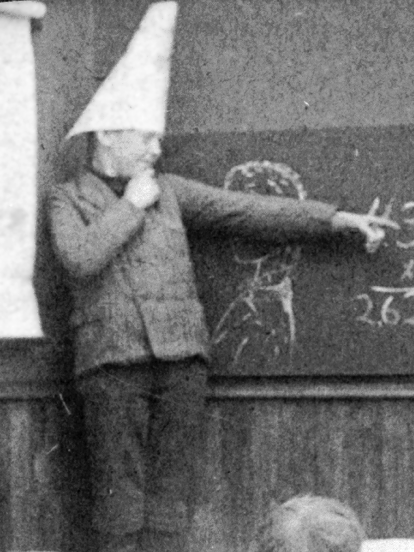|
Ignoramus
{{disambiguation ...
Ignoramus may refer to: *Latin for "we do not know" * ''Ignoramus'', a college farce written in 1615 in Latin by George Ruggle *An ignorant person or dunce (as a consequence of Ruggle's play) *A verdict by a Grand Jury, meaning "we do not know of any reason why this person should be indicted on these charges" See also *Ignoramus et ignorabimus The Latin maxim , meaning "we do not know and will not know", represents the idea that scientific knowledge is limited. It was popularized by Emil du Bois-Reymond, a German physiologist, in his 1872 address ("The Limits of Science"). Seven ... [...More Info...] [...Related Items...] OR: [Wikipedia] [Google] [Baidu] |
Ignoramus (play)
''Ignoramus'' is a college farce, a 1615 academic play by George Ruggle. Written in Latin (with passages in English and French), it was arguably the most famous and influential academic play of English Renaissance drama. Ruggle based his play on '' La Trappolaria'' ( 1596), an Italian comedy by Giambattista della Porta (which in turn borrows from the ''Pseudolus'' of Plautus). In Latin, '' ignoramus'', the first-person plural present active indicative of '' īgnōrō'' (“I do not know”, “I am unacquainted with”, “I am ignorant of”), literally means “we are ignorant of” or “we do not know”. The term acquired its English meaning of an ignorant person or dunce as a consequence of Ruggle's play. Performance The play was first produced in Clare College, Cambridge on Wednesday, March 8, 1615, as part of the program of entertainments for a visit by King James I. James enjoyed the play so much that he returned to Cambridge to see it again on Saturday, May 13 of th ... [...More Info...] [...Related Items...] OR: [Wikipedia] [Google] [Baidu] |
Dunce
Dunce is a mild insult in English meaning "a person who is slow at learning or stupid". The etymology given by Richard Stanyhurst is that the word is derived from the name of the Scottish Scholastic theologian and philosopher John Duns Scotus. Dunce cap A dunce cap, also variously known as a dunce hat, dunce's cap or dunce's hat, is a pointed hat, formerly used as an article of discipline in schools in Europe and the United States—especially in the 19th and early 20th centuries—for children who were disruptive or were considered slow in learning. In the 19th century, it was seen by some as degrading: in 1831, children's book author Sidney Babcock wrote of the dunce cap as debasing and harsh, and in 1899, historian Alice Morse Earle compared it to other forms of school discipline she saw as degrading and outdated. It became unpopular in the early 20th century. Some American schools still permitted caps as late as the 1950s, however, and it was more recently banned in sever ... [...More Info...] [...Related Items...] OR: [Wikipedia] [Google] [Baidu] |
Grand Jury
A grand jury is a jury—a group of citizens—empowered by law to conduct legal proceedings, investigate potential criminal conduct, and determine whether criminal charges should be brought. A grand jury may subpoena physical evidence or a person to testify. A grand jury is separate from the courts, which do not preside over its functioning. Originating in England during the Middle Ages, grand juries are only retained in two countries, the United States and Liberia. Other common law jurisdictions formerly employed them, and most others now employ a different procedure that does not involve a jury: a preliminary hearing. Grand juries perform both accusatory and investigatory functions. The investigatory functions of grand juries include obtaining and reviewing documents and other evidence, and hearing sworn testimonies of witnesses who appear before it; the accusatory function determines whether there is probable cause to believe that one or more persons committed a particul ... [...More Info...] [...Related Items...] OR: [Wikipedia] [Google] [Baidu] |

.jpg)